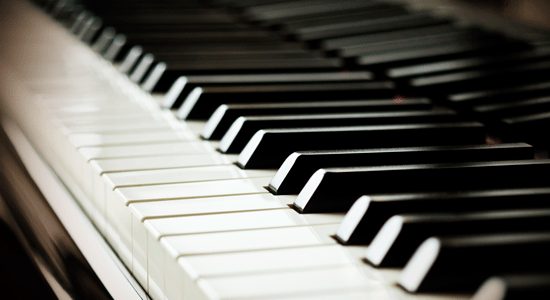In music, a flat five is a passing chord that harmonizes well with almost any sound. The singers in Chicago’s Flat Five—Kelly Hogan, Nora O’Connor, Scott Ligon, Casey McDonough and Alex Hall—are as versatile as the name of their group implies. They’re all well-known songwriters, musicians and side-persons in their own right, but when they sing as the Flat Five, they touch on something transcendent. Their complex, intertwining harmonies bring to mind the shimmering sounds of the Four Freshmen, Beach Boys, Lambert, Hendricks And Ross, Harry Nilsson and the Everly Brothers—singers who could create breathtaking emotional effects using nothing but their voices. The Flat Five will be guest editing magnetmagazine.com all week. Read our brand-new feature with them.

Ligon: Why is it that there have been so few great rock-and-roll piano players throughout history?
Seriously, I can practically name them on one hand: Jerry Lee Lewis, Little Richard, Fats Domino, Johnny Johnson, Terry Adams. I’ve had this conversation with Terry (founder and pianist of NRBQ). I asked him this question when we first met. He said, “It’s because they’re all wussies!” Actually, that wasn’t the exact terminology that he used, but for the sake of this piece we’ll use the word “wussies.”
I laughed at that initially, but as the years have passed I’m starting to believe it more and more. Jerry Lee Lewis is without question the king of rock ‘n’ roll piano. I don’t think there is anyone who would argue with this notion. He had it all. True musicianship combined with true insanity! A really great musician, dancing on the ledge between heaven and hell at all times. That sort of defines the genre as far as I’m concerned.
Fats Domino is arguable. I’ll bet you that he wouldn’t consider himself to be a great piano player. He didn’t even play on half of his own records. James Booker and others played on many of his recording dates. Now, James Booker is truly a genius at the instrument, but I wouldn’t consider him to be a “rock ‘n’ roll” pianist. He’s in a different stratosphere.
Little Richard had a great urgent feel in his playing, but it was definitely secondary to his almost impossible singing. Johnny Johnson was great when playing on Chuck Berry’s records for sure—but I have yet to see any evidence that we would have ever heard of him if it weren’t for his association with Chuck.
Then there are the people like Elton John and Billy Joel who are basically singer/songwriters who happen to have chosen piano as the instrument they accompany themselves with. In other words, they’re wussies.
Some say Dr. John, but I say he stole everything he knows from James Booker. Allen Toussaint I consider to be a genius in his own right, but more so for his skills as a composer, arranger, producer, pianist and singer. Plus he’s a gentleman, very refined. Not the wild, vicious animal, foaming at the mouth, that Jerry Lee used to be. And sure, there were countless session musicians who were involved in making great records throughout the ’50s and ’60s, but most of them went unheralded, unknown.
Then there’s Terry Adams. I believe he is the closest thing to the true definition of a rock ‘n’ roll piano player since Jerry Lee Lewis. He’s written more than 200 songs in his career, yet there is nothing “singer/songwriter” about Terry. He’s no kitten on the keys either. He’s a crazy person.
So why is it that there are so few “gun-slingers” on this instrument when there seem to be hundreds of well-known, wild-ass guitarists throughout rock ‘n’ roll history? Maybe it’s the instrument itself. Piano players have always been at the mercy of the instrument they’re playing at any given show. In the days before electric instruments, it was whether or not the venue cared enough about their piano to keep it tuned regularly. I’ve heard stories of guys having to play a half step above the key everyone else is playing in to be in tune. (I myself have lost several ounces of blood playing pianos that had missing pieces of ivory on the keyboard.)
Then with the invention of the electric guitar and subsequently roc ‘n’ roll, piano players really had their work cut out for them. Try getting an upright piano to be heard with a microphone while there are two or three guys playing electric instruments through 50- to 100-watt guitar amps. It’s impossible.
And it’s due to this volume-disparity phenomenon that piano players have accepted playing a virtual instrument instead of the real thing. The digital piano. They’re lightweight and portable, unlike a real piano. They don’t have to be tuned, unlike a real piano. They can be played at extremely loud volume, unlike a real piano. And above all else, they’re zero fun to play!
Whenever you see a guy or girl playing a digital piano, you’re watching a person suffer. They just don’t fit into the world of natural music. Everyone else on stage is playing a natural instrument while the piano player is playing a video game.
It’s even had it’s effect on the recording industry. Many recording studios don’t bother buying a real piano anymore. They’re too expensive to buy new and they’re too costly to repair and tune consistently and besides—piano players don’t seem to care anyway. They’ve accepted their lot as music’s second-class citizens. Yet they could have kept this unhappy evolution from taking place by insisting that the guitar player “turn that goddam thing down!” But, as I said before, piano players are wussies!






